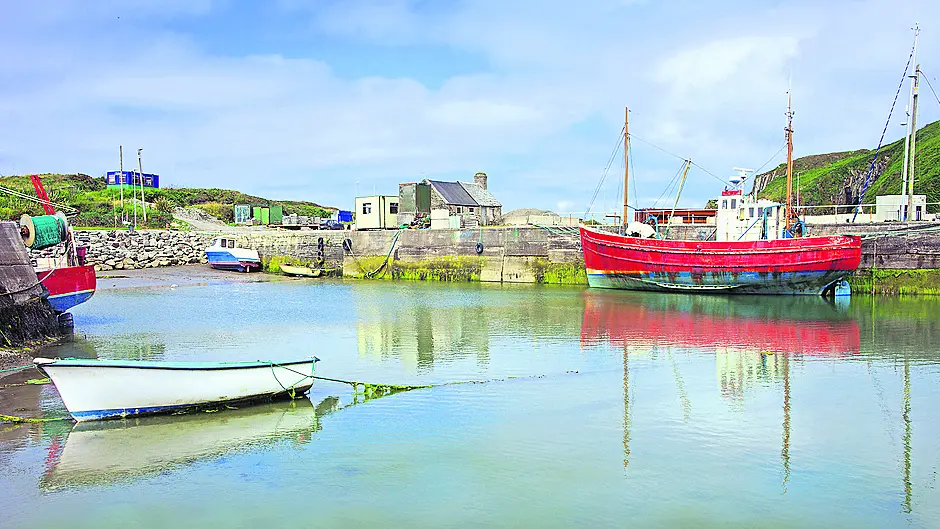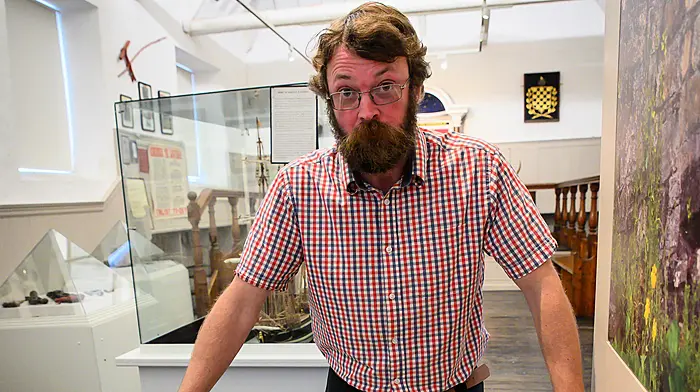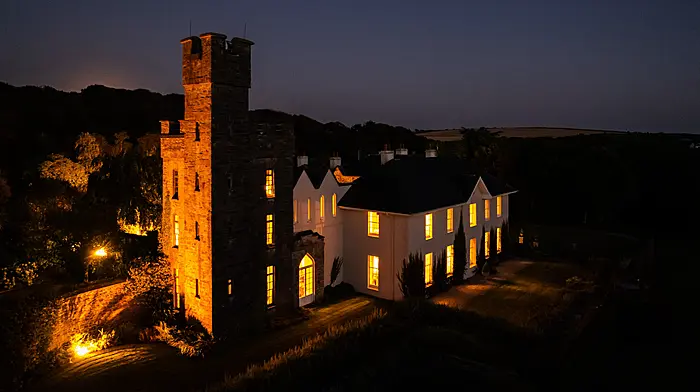With Irish colleges nationwide cancelled due to the global pandemic, Cape Clear and Ballingeary are facing challenging and unprecedented times
THIS will be the first summer since 1967 that Coláiste Pobail Chléire, on Oileán Chléire (Cape Clear) won’t be buzzing with students attending its renowned Irish courses.
Irish colleges everywhere have been one of hundreds of events wiped off the summer’s calendar due to Covid-19.
The situation is the same in Coláiste Na Mumhan, Ballingeary. Set up in 1904, it will remain shut, breaking a 116 year tradition.
Everyone associated with both colleges appreciates the decision was necessary but nonetheless, feel this summer will be very different to any other with wide ranging repercussions.
They are naturally worried about the financial loss this means for themselves and their community.
But they’re also very concerned for what this means for the Irish language, and the vitality of their Gaeltachts.
Donal Ó Laoire manager of Coláiste Na Mumhan feels it’s going to impact them in ways they can’t even gauge yet.
‘We cannot even put a cost on this,’ he said.
They host 170 students on each of their two courses. The first was due to start on the June Bank Holiday Weekend and run for three weeks, while the second would have started on June 28th and run for two weeks.
The first course (costing €925) was fully booked and the second (€625) was almost there but after March 13th, Donal said ‘it was like the tap was turned off.’
Between teachers, assistants, cooks and cleaners, at least 30 people are employed per course, with 90% of them coming from the local Ballingeary community.
It’s a typical village with two shops, a chipper and two pubs, he says, and the college is a huge revenue stream for them, between the students themselves and people who visit them.
‘But it’s more than that. The students were a catalyst in keeping Irish alive – they brought new energy to us. This is a loss to our culture, our language and our heritage,’ he said.
‘Lots of the children are devastated it’s not going ahead – going to Irish college is a rite of passage and for many of them it’s the first time away from their parents. We have some that come year after year, and have some who are the second generation of their family to come to us,’ he said.
The majority of the youngsters stay on campus, with 14 of them accommodated by bean an tí Bríd Uí Chrualaoí.
She has been a bean an tí with Coláiste na Mumhan for the past 33 years, like her mother was before her.
‘I was brought up with Irish and students attending the Gaeltacht all my life. Of course the government were right to cancel for the safety and health of the students and management. I accept the decision, but I was ready to extend a céad míle fáilte again this summer. The Irish colleges and the mná tí are doing super work for the good of the Irish language and the culture. These students come from all over Munster and also Dublin, Kilkenny and one year I had two as far away as Boston. A lot of these children’s parents and grandparents also would have attended the Coláiste. I love the summer and helping students with the Gaeilge, they return year after year. I am not looking forward to a quiet house this summer.’
Coláiste Pobail Chléire teacher Siobhán Ní Dhrisceoil feels the same. The Oileán Chléire native started working in the college as a ceannaire (leader) after her leaving cert in 2012.
Now teaching in the gaelscoil in Clonakilty, she’s also the principal of one of the island’s three courses, the first of which hosts around 63 youngsters, while the other two take 40 each. Some stay in the island’s hostel, and others with mná tí.
‘When the students arrive, you know that Summer has arrived. They change the atmosphere, there are new faces and a great buzz around,’ said Siobhán.
She fears a lack of vibrancy on the island this summer, but fully accepts there wasn’t another option.
Bainisteoir of the college and manager of Comharchumann Chléire Teoranta, the island's co-operative, Máirtín Ó Méalóid said they had been fully booked but were doing their best to stay positive.
‘All our costs are spread across the year and when deposits were paid in September we would have used them on things like updating our policies etc. Since the news was announced, we’ve emailed all parents offering either a refund or to transfer them to 2021.
‘It is going to be a very strange summer but we’re just trying to be as positive as we can and focus on 2021,’ he said.
The college provided employment all year around on the island with another 30 or so working on each course.
And naturally, it provided a seasonal boost to island businesses such as the chip van, shop, campsite, hostel and ferry who brought parents, and relatives to visit students during their stay.
Seamus Ó Drisceoil who runs the ferry, typically employs around eight to nine people on a full and part time basis, a number which would double in the summer.
‘But I can’t see that happening this summer. We have four ferries but as things stand I think we’ll only use one this summer. When it comes to social distancing, in theory we have the space but you can’t stop passengers moving around, and If you drill into it, for example if they use the toilet, it’s going to be very difficult.
‘We are all in it together, I know, but at the same time this is going to be very hard.’
In Irish Colleges throughout the country, the feeling is that State assistance is needed to get them through this unprecedented time.
Donal Ó Laoire concluded: ‘If we don’t get some financial help from the state we may not be able to reopen. The other danger is that we’ll be facing into recessionary times and parents may not even be able to afford to send their kids to Irish college. This is unknown territory for us all.’









